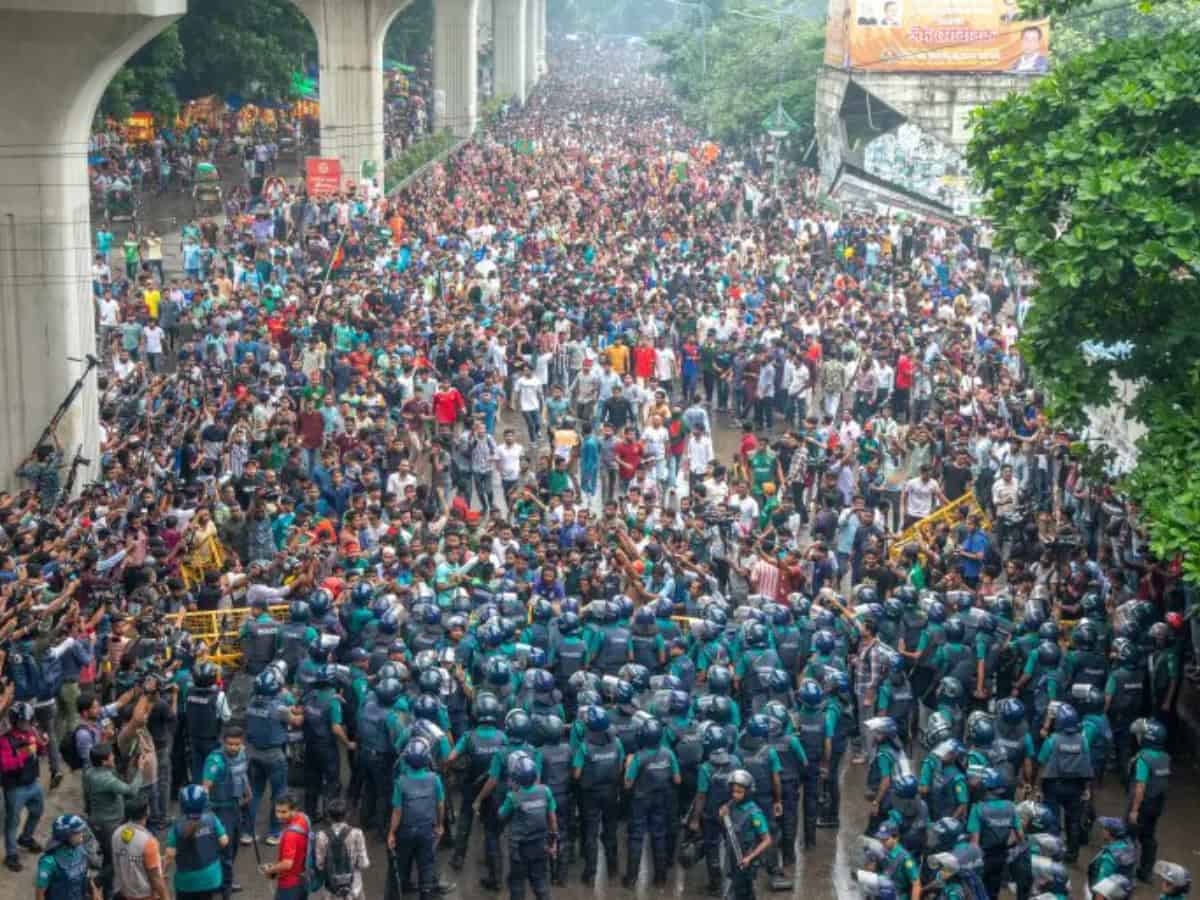
Dhaka: The mobile internet connection was restored in Bangladesh on Sunday, 10 days after it was restricted by the authorities across the country to stop the spread of fake news on social media amidst the deadly nationwide violence over reforms in the quota system in government jobs.
Addressing a press conference here, Minister of State for Information and Communication Technology (ICT) Zunaid Ahmed Palak announced that 5GB internet will be given for free to all users for three days after the connection is restored, the Dhaka Tribune newspaper reported.
The mobile internet connectivity was restored at around 3:00 pm local time.
Users of Robi, Grameenphone, Banglalink and other operators in Dhaka said they could access the internet through their phones around 3 pm, the report said.
On July 18, the government shut down mobile internet following the escalation of violence across the country.
At the time, Palak said the decision was made “in light of the current crisis in the country and to stop the spread of fake news on social media”, The Daily Star newspaper reported.
The next day, amid escalating violence, the Department of Disaster Management building was set on fire, adjacent to which was a data centre. While Internet Service Providers Association of Bangladesh (ISPAB) officials said that the fire might cut 30-40 per cent of the bandwidth supply, broadband internet connection for the entire country was disrupted within an hour.
Bangladesh stayed disconnected from both broadband and mobile internet between July 18 and July 23, when broadband internet was restored in stages.
However, mobile internet remained unavailable until Sunday.
Regarding access to social media platforms, Palak said the Bangladesh Telecommunication Regulatory Commission (BTRC) has sent letters to authorities of social media platforms, including Facebook, Tiktok and YouTube.
“Their representatives have to come to Dhaka by July 31 to give explanations. Then, after discussing it with them, we will make a decision,” he said.
The BTRC is responsible for regulating all matters related to telecommunications in Bangladesh.
Bangladesh witnessed violent clashes between the police and mostly student protesters demanding an end to a controversial quota system that reserved 30 per cent of government jobs for relatives of veterans who fought in Bangladesh’s War of Independence in 1971.
The internet and mobile services were snapped following the countrywide violence.
On Monday last, the apex court slashed the veterans’ quota to just 5 per cent. Thus, 93 per cent of civil service jobs will be merit-based while the remaining 2 per cent reserved for members of ethnic minorities, transgender and physically challenged people.
The violence has reportedly killed more than 100 people, according to local newspapers. However, there are no official figures available for deaths.
Prime Minister Sheikh Hasina defended her decision to enforce a curfew on Tuesday with a shoot-on-sight order following the clashes, asserting that tough measures were taken to ensure the security of the lives and properties of the people.
Bangladesh crawled back to normalcy on Wednesday with rush hour traffic returning to streets in the capital, and limited reopening of banks, garment factories and internet services.
